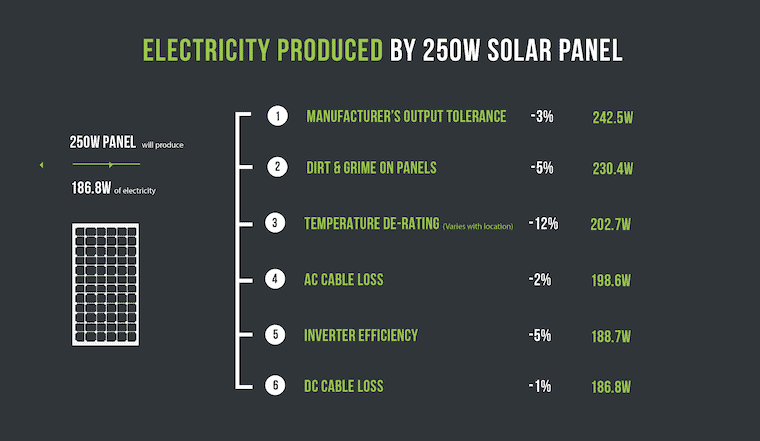
Mastering Solar Power Calculation Techniques
Harnessing solar power has become increasingly popular as a sustainable and renewable energy source. Understanding how to calculate solar power is a crucial step in determining the feasibility and efficiency of solar installations. Let’s delve into the key aspects of mastering these calculation techniques.
Understanding Solar Irradiance and Location
Solar irradiance is the amount of sunlight that reaches a specific area. Understanding the solar irradiance at your location is essential for accurate calculations. Different regions receive varying amounts of sunlight, and this data is fundamental for determining the potential energy output of a solar power system.
Calculating Solar Panel Efficiency
Solar panels have an efficiency rating that indicates how effectively they convert sunlight into electricity. Higher efficiency panels generally produce more power, making them a key factor in solar power calculations. Efficiency is influenced by factors such as the type of panels, quality, and technological advancements.
Assessing Roof Space and Orientation
The available roof space and its orientation significantly impact solar power calculations. A solar panel system requires adequate space and should ideally face towards the sun for maximum exposure. Roof orientation, tilt, and shading must be considered to optimize energy production.
Determining System Capacity and Load Requirements
Understanding your energy needs is crucial for determining the capacity of your solar power system. Evaluate your historical electricity usage to size the system appropriately. Consider factors like peak load times and any potential future changes in energy requirements.
Factoring in Inverter Efficiency
Inverters play a critical role in converting the direct current (DC) generated by solar panels into usable alternating current (AC). Inverter efficiency is an important consideration, as it affects the overall efficiency of the solar power system. Choose an inverter that complements the capacity and efficiency of the solar panels.
Incorporating Battery Storage for Off-Grid Systems
For off-grid solar systems, incorporating battery storage is essential. Calculations should include the capacity and efficiency of the battery storage system. This ensures a reliable power supply during periods of low sunlight or in locations without access to the grid.
Considering Local Regulations and Incentives
Before finalizing solar power calculations, it’s crucial to consider local regulations and incentives. Some regions offer financial incentives or rebates for solar installations, while regulations may dictate aspects like system size, grid connection, and safety standards.
Utilizing Online Solar Calculators
Online solar calculators simplify the process by providing estimates based on various parameters. These tools consider factors like location, roof space, panel efficiency, and energy consumption. While they offer a quick overview, it’s advisable to consult with a solar professional for more accurate calculations.
Performing Financial Analysis and Return on Investment
Calculating the financial aspects of a solar power system is vital. Assess the upfront costs, potential savings on electricity bills, available incentives, and the projected lifespan of the system. This financial analysis helps determine the return on investment (ROI) and the overall economic viability of the solar installation.
Embracing Sustainable Energy with Solar Power
Mastering solar power calculations empowers individuals and businesses to make informed decisions about transitioning to sustainable energy. Initiatives like How to Calculate Solar Power provide valuable insights and resources, bridging the gap between theoretical knowledge and practical application. By embracing solar power, we contribute to a cleaner and more sustainable energy future.
Conclusion: Empowering Clean Energy Choices
In conclusion, mastering solar power calculation techniques is an essential step towards embracing clean and sustainable energy choices. Whether for residential, commercial, or off-grid applications, accurate calculations ensure optimal performance and financial viability. As we harness the power of the sun and explore initiatives like How to Calculate Solar Power, we take significant strides towards a greener and more sustainable future.


